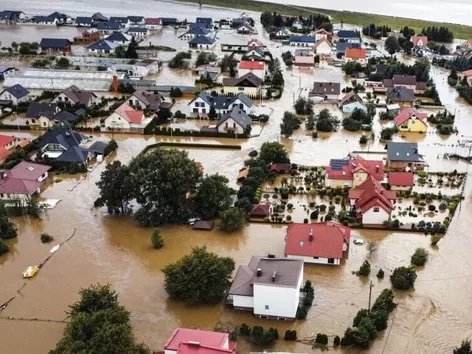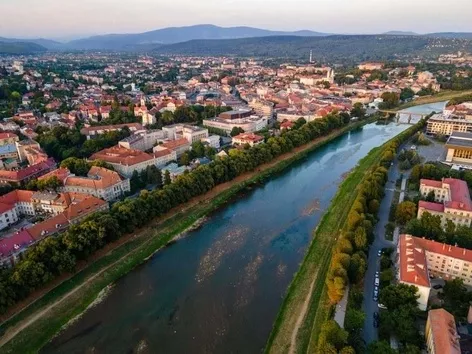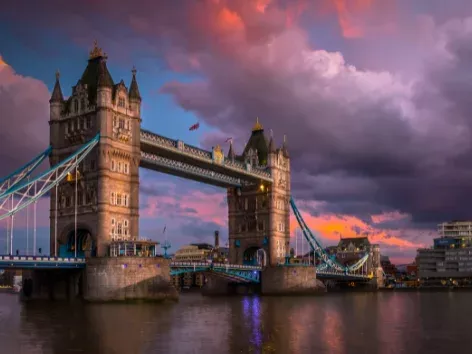Poland has declared a state of natural disaster: what should Ukrainians know and how to act in case of danger?

The Polish government has declared a state of natural disaster due to large-scale flooding. Find out which regions have been affected, how to act in case of a threat, and what kind of assistance you can expect
On September 16, 2024, the Polish government declared a state of natural disaster in the southern regions due to large-scale flooding. According to the State Fire Service, parts of the Lower Silesian, Opolskie, and Silesian Voivodeships have been most affected and are currently facing serious consequences of the disaster. For 30 days, while the state of emergency is in effect, residents of these regions are obliged to follow the recommendations of the government and rescue services.
Please note! A state of natural disaster implies strict security measures. This may include evacuating the population, restricting movement, vacating housing for rescue operations, etc.
Which cities in Poland have declared a state of natural disaster?
The floods affected three voivodeships in southern Poland, where a state of natural disaster was declared:
1. Lower Silesia: Kamiennogórski, Karkonoski, Kłodzki, Lwówecki, Wałbrzyski and Ząbkowicki counties, as well as the city of Wałbrzych and Jelenia Góra;
2. Opolskie: Głubczycki, Niski and Prudnicki poviats, as well as the Strzeleczki Commune in the Krapkowicki Poviat;
3. Silesian: Bielskie, Cieszyńskie, Pszczyńskie and Raciborski counties, as well as the city of Bielsko-Biała county.
According to the head of the Polish police, Marek Boron, during a meeting of the crisis headquarters in Wroclaw on September 16, more than 3,200 people had already been evacuated, and four people unfortunately died.
When will the flood wave reach Wroclaw?
The disaster is currently affecting small towns, but the flood threatens the city of Wroclaw, which has a population of thousands. According to the latest forecasts of the Institute of Meteorology and Water Management, the peak wave will reach there earlier than expected, namely on the night of September 17-18 (around 03:00 am).
The flood wave is expected to culminate at Olava station at 770 cm, which is higher than the previous forecasts (600-650 cm). At the same time, the wave is expected to culminate in Wroclaw in the evening of September 18.
The mayor of Wroclaw said that embankments are being strengthened and raised in different parts of the city. Metal walls will also be installed on the river canal. Since Monday, sandbags have been distributed to residents to protect their property.
Read more about the consequences of Cyclone Boris in different European countries in our previous article.
What restrictions are imposed by the state of natural disaster?
According to the current Polish legislation, the introduction of a state of natural disaster provides for the following restrictions:
1. Obligatory vacating or securing housing or other premises;
2. An order to evacuate certain areas;
3. Prohibition of staying in certain places or using certain ways of transportation;
4. Control of access to the areas affected by the natural disaster.
It is worth noting that the country's leadership immediately began coordinating with local services to combat the consequences of the disaster and minimize damage. The Prime Minister of Poland, Donald Tusk, personally visited the affected regions, where he urged the services to take further action and promised support to the residents.
Support for flood victims in Poland
According to the Office of the Polish Prime Minister, 1 billion zlotys has been allocated from the reserve for the needs of places and people affected by the floods. According to Tusk, anyone affected by the floods can apply to local authorities for immediate social assistance:
– 8 thousand zlotys (80 thousand UAH) of social assistance.
– 2 thousand zlotys (20 thousand UAH) to cover the damage caused by the disaster.
In addition to local government assistance, Poland is stepping up international cooperation. The Prime Minister of Poland has announced talks with neighboring countries such as the Czech Republic, Slovakia, and Austria to attract EU funding to compensate for the damage.
It is worth noting that Ukraine also expressed its readiness to send 100 rescuers to help fight the consequences of the disaster. However, Donald Tusk expressed his gratitude, noting that at this stage Poland has enough resources to overcome the crisis on its own.
"We all know what Ukraine is struggling with. I thanked you, but the place of Ukrainian rescuers is in Ukraine, they have something to do there. So we certainly appreciate this gesture, but we will cope," he said.
Visit Ukraine on social media: Telegram | YouTube | Instagram | Facebook | Twitter | TikTok
What to do during a flood and how to prepare for evacuation? Safety rules and tips
First of all, in order to preserve your own life and health, as well as to respond to possible risks in a timely manner, you need to follow the forecasts and warnings of the Institute of Meteorology and Water Management (Instytut Meteorologii i Gospodarki Wodne).
In case of emergency, it is recommended to follow the following rules:
1. Follow the announcements on local radio and television.
2. If possible, send children, elderly people and pets to safe places. Make sure that all family members know what to do in the event of an emergency or life-threatening situation, and agree on ways to communicate and evacuate.
3. Turn off gas, water and electricity in case of evacuation.
4. Keep your cell phone with you and keep it charged.
5. Prepare medicines, documents and valuables, and move them to the upper floors of the building if necessary. It is also advisable to prepare a supply of food and water, clothing, flashlights, as well as blankets and hygiene products.
6. Take care of building protection, prepare sandbags.
7. Secure harmful substances such as pesticides, insecticides, paints, varnishes, solvents and other chemicals, as well as oil and fuel containers that may get into the water.
Remember! Staying in a flooded area is a huge risk. And in addition to the danger of drowning, other factors must be taken into account: infectious diseases, lack of electricity, water and sewage. If you refuse to evacuate, it may be impossible to get the help you need in time.
When preparing for evacuation, remember that adults should have no more than 50 kg of luggage (up to 20 kg per person and up to 50 kg per family). Evacuation with pets (especially large ones) may be difficult, so you should take care of their rescue in advance.
What to do if you are in danger during a flood
1. Try not to panic
2. Turn off all electrical and gas appliances, turn off the water.
3. Move to higher floors if the water is coming in fast.
4. Follow the instructions of local authorities and rescuers.
5. Do not use any water other than bottled water, as it may be contaminated.
6. Do not walk in flooded areas - fast-moving water can knock an adult down. If you need to cross a flooded area, use a stick to check the ground in front of you.
7. In case of a threat to life or health, call the emergency number 112.
How do I understand/send signals to rescuers?
1. If you need to evacuate, hang a white cloth (conditional flag) in a visible place;
2. If you need medical assistance, the “flag” should be red;
3. If you need food and water, it should be blue;
4. If you see a helicopter and need help, raise both hands in the air, forming a silhouette like the letter “Y” (Yes);
5. If you do not need assistance, raise only one arm up and keep the other arm down to form a silhouette similar to the letter “N” (No).
6. Try not to wave your arms to avoid confusing the rescue services and to send the correct signal for help.
Photo: Państwowa Straż Pożarna / Facebook
Do not neglect your own safety! Prepare for evacuation, follow safety rules and listen carefully to the instructions of local authorities and rescue services.
We remind you! Last week, a large-scale cyclone Boris hit Europe. Floods and snowstorms affected Austria, Poland, the Czech Republic, Romania, and a number of other countries. Read about the current situation in Europe and how Ukraine has joined the EU's assistance in our previous article.
Photo: Państwowa Straż Pożarna / Facebook
Want to know more? Read the latest news and useful materials about Ukraine and the world in the News section.
Our recommendation for a safe and comfortable trip:
Visit Ukraine Insurance - insurance for a safe stay abroad without unnecessary expenses;
Green Card - compulsory car insurance for traveling abroad;
Visit Ukraine Tickets - book tickets for buses, trains, and airplanes to/from Ukraine and between cities around the world;
Private Lawyer service - professional legal support on visa and migration issues;
Visit Ukraine Merch - buy patriotic clothing and accessories with worldwide delivery.
© 2018-2024, Visit Ukraine. Use, copying or reprinting of materials on this site is permitted only with a link (hyperlink for online publications) to Visit Ukraine.
All rights reserved.
Frequantly
asked questions
What is the name of the cyclone that caused flooding in Europe?
Where is the most difficult situation in Europe with Cyclone Boris?
What changes in weather conditions has the cyclone caused in Austria?
Where in Poland did the dam burst during the storm?
Where in the Czech Republic is the critical situation due to the cyclone?
Recommended articles
2 min
Cost of living
How much does a month of living in Uzhhorod cost? Prices for housing, transportation and food
Uzhhorod is the smallest regional center in Ukraine, located on the border with Slovakia. This Transcarpathian city has always been considered a tourist and logistics center, and during the Russian military aggression it became attractive for living, as many people from the East of Ukraine moved here. Find out how much it costs to live in Uzhhorod for a month: economically, comfortably or on the high end.
14 Sep. 2024
More details1 min
Popular
From now on, the rules for sending products by post are changing in Ukraine. They concern the shelf life of goods. Find out how to send products
13 Sep. 2024
More details1 min
Travel
Britain introduces tourist tax: will Ukrainians have to pay?
From 2025, those wishing to come to the UK will have to pay a special fee - this applies even to European residents. Find out how much you'll have to pay and who will be exempted
13 Sep. 2024
More details2 min
Travel
Insurance for travelling to Spain: who needs it, how to apply and where to find it?
Taking out travel insurance for a trip to Spain is an important step to ensure your safety during your stay abroad. Whether you're going on holiday or planning to work or live in Spain for a long time, choosing the right policy will help you avoid unexpected expenses and ensure access to medical care in any situation. Find out when and who needs it
15 Sep. 2024
More details

